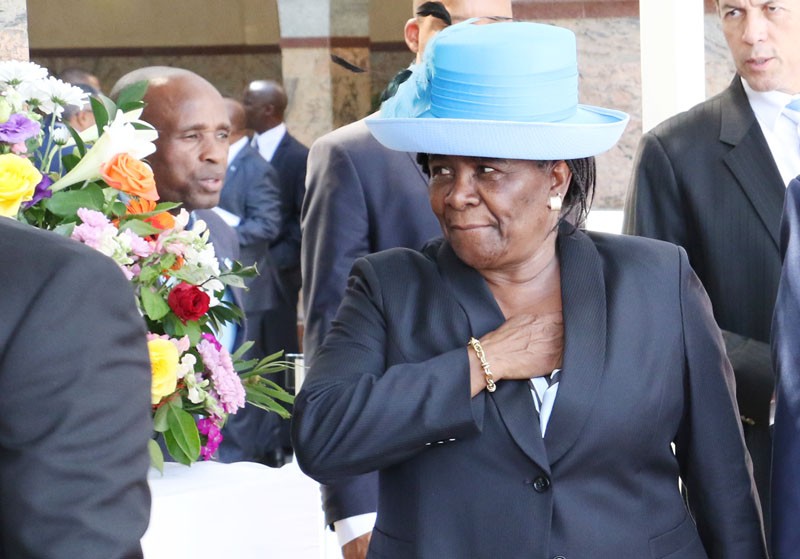Venson-Moitoi itching for first AU debate
Tefo Pheage | Wednesday December 7, 2016 15:43


The debate is a preparation for the new elections, which will be held during the 28th Ordinary Session of the Assembly of Heads of State and Government from January 30 to 31 at the AU Headquarters in Addis Ababa.
Venson-Moitoi will be competing against Equatorial Guinea’s Foreign Minister, Agapito Mba Mokuy, Chad’s Moussa Faki Mahamat, Senegal’s Abdoulaye Bathily and Kenya’s Foreign Minister Amina Mohamed.
The candidates will not engage one another directly at the event, but a moderator will pose questions on issues pertinent to the continent.
They will later field questions from the audience, mostly African diplomats representing their countries at the AU.
In a brief interview, Botswana’s candidate, Venson-Moitoi said she was more than ready for the debate and the election.
“I have prepared well for the debate and continue to offer myself as an agent of the sustainable transformation agenda that is ongoing at the level of the AU,” she said.
Experts however say that the debate may add little value to the elections, as those in the audience do not vote, as it is the prerogative of heads of states.
The debate will be conducted before a live audience comprising members of the AU Executive Council; members of Permanent Representatives Committee (PRC), AU Commissioners; media personnel and invited guests.
It aims at popularising the AU and giving the candidates an opportunity to speak to African citizens and present their vision for the fulfilment of the AU vision of an integrated, prosperous and peaceful Africa.
The event will be streamed live to the entire continent and beyond on the AU live stream link, which is available on the AU website, au.int. It will also be broadcast live.
Meanwhile, it appears not enough space and opportunities are now left for campaigns. Candidates have been using various internatiosal platforms to seek support.
In fact, the just-ended Marrakech Climate Change Conference seems to have been the last opportunity.
Observers say that the debate is coincidentally happening at a time when Africa needs consensus and more action on defining the continent’s role in 2016 and beyond.
Africa is confronted by amongst other issues, the economic inequality and climate change, Brexit and a Trump presidency, which has sent shivers amongst many spines, recurring conflicts and China as a development partner to developing nations.
Pundits further say that the next AU chair would need an unparalleled understanding of transnational, regional security challenges and global debates that will require Africa’s voice to stand out.
These, they say will involve dealing with Arab and European countries on shared spaces of both the Mediterranean and Red Seas, and the current crises of migration associated with them.
